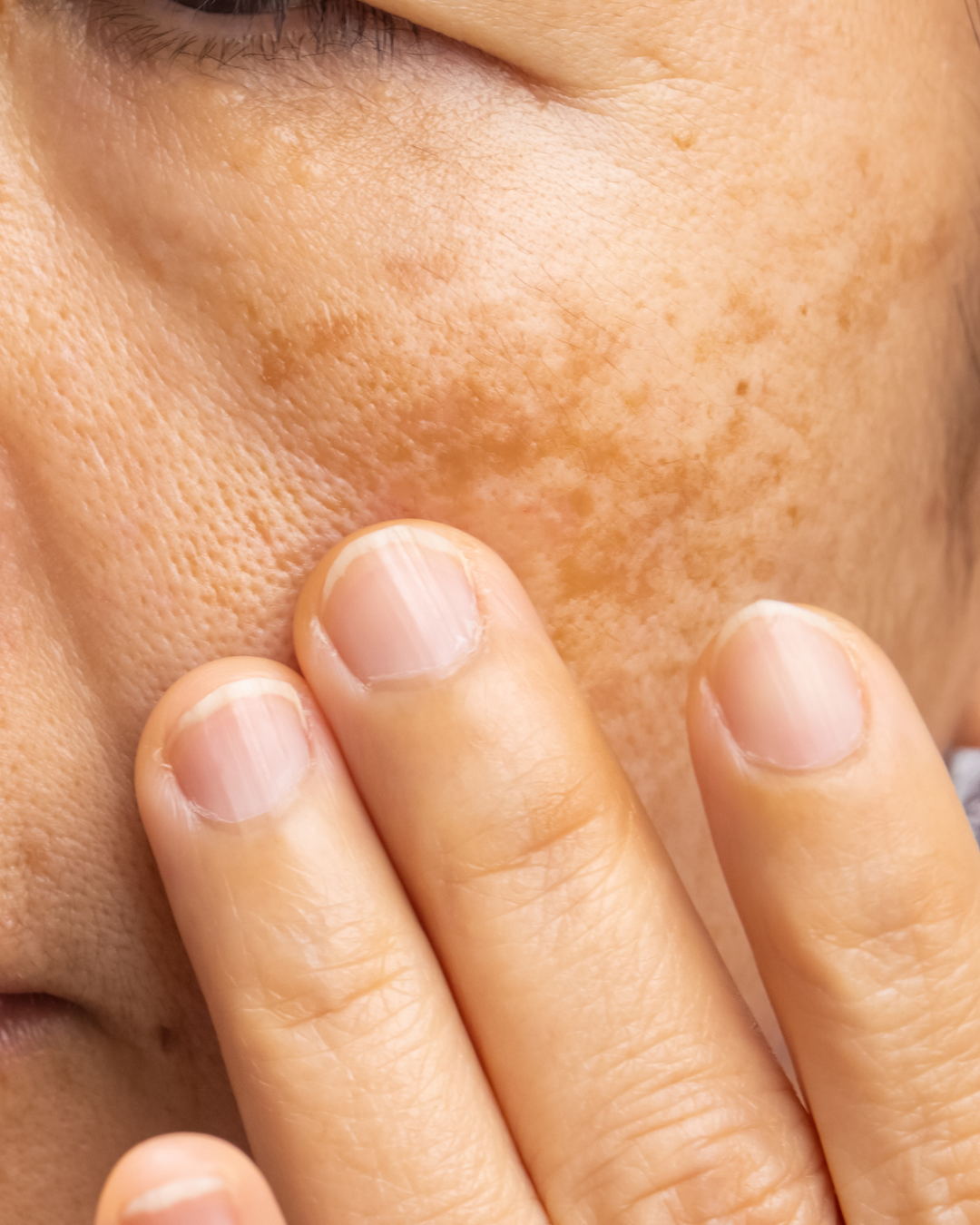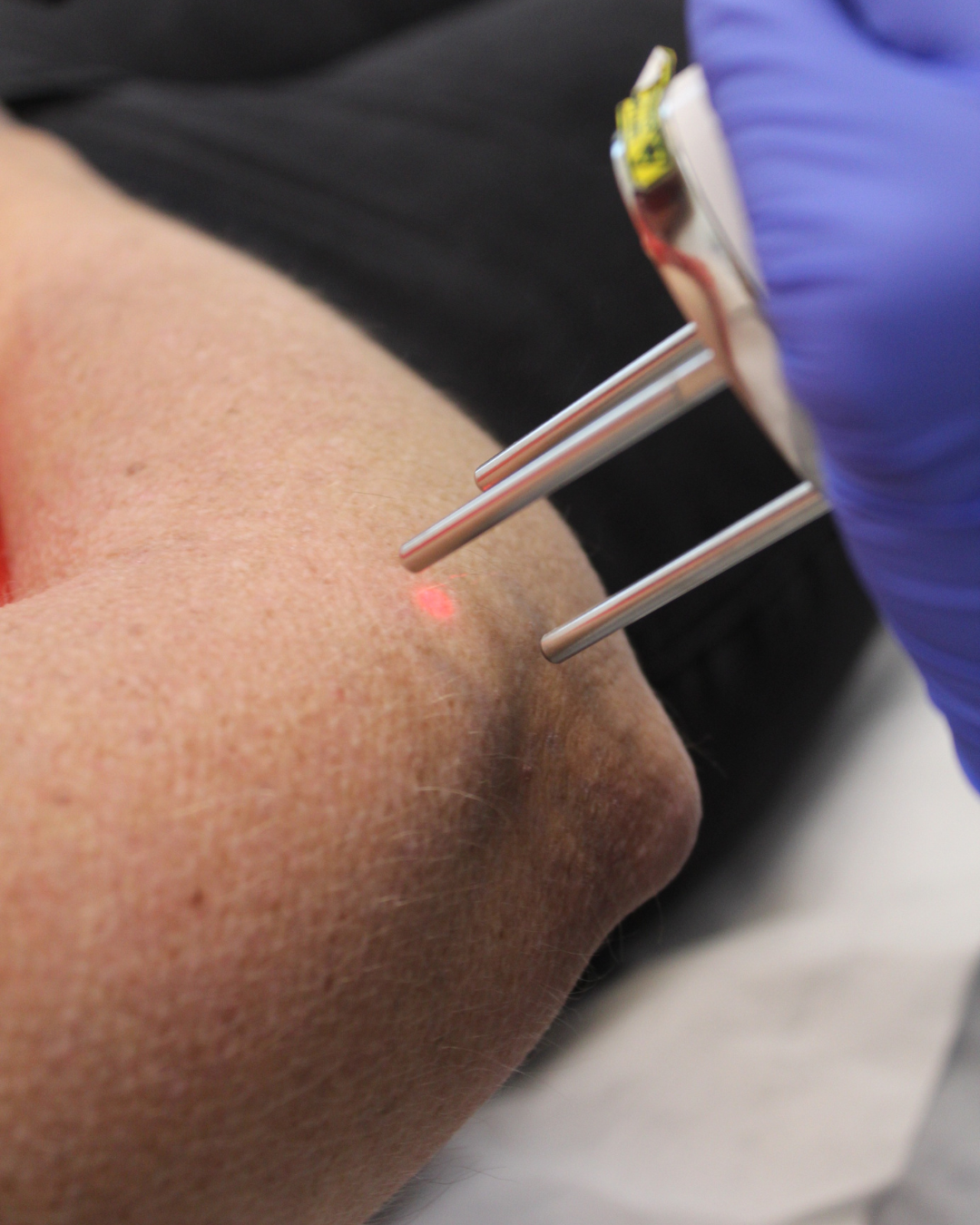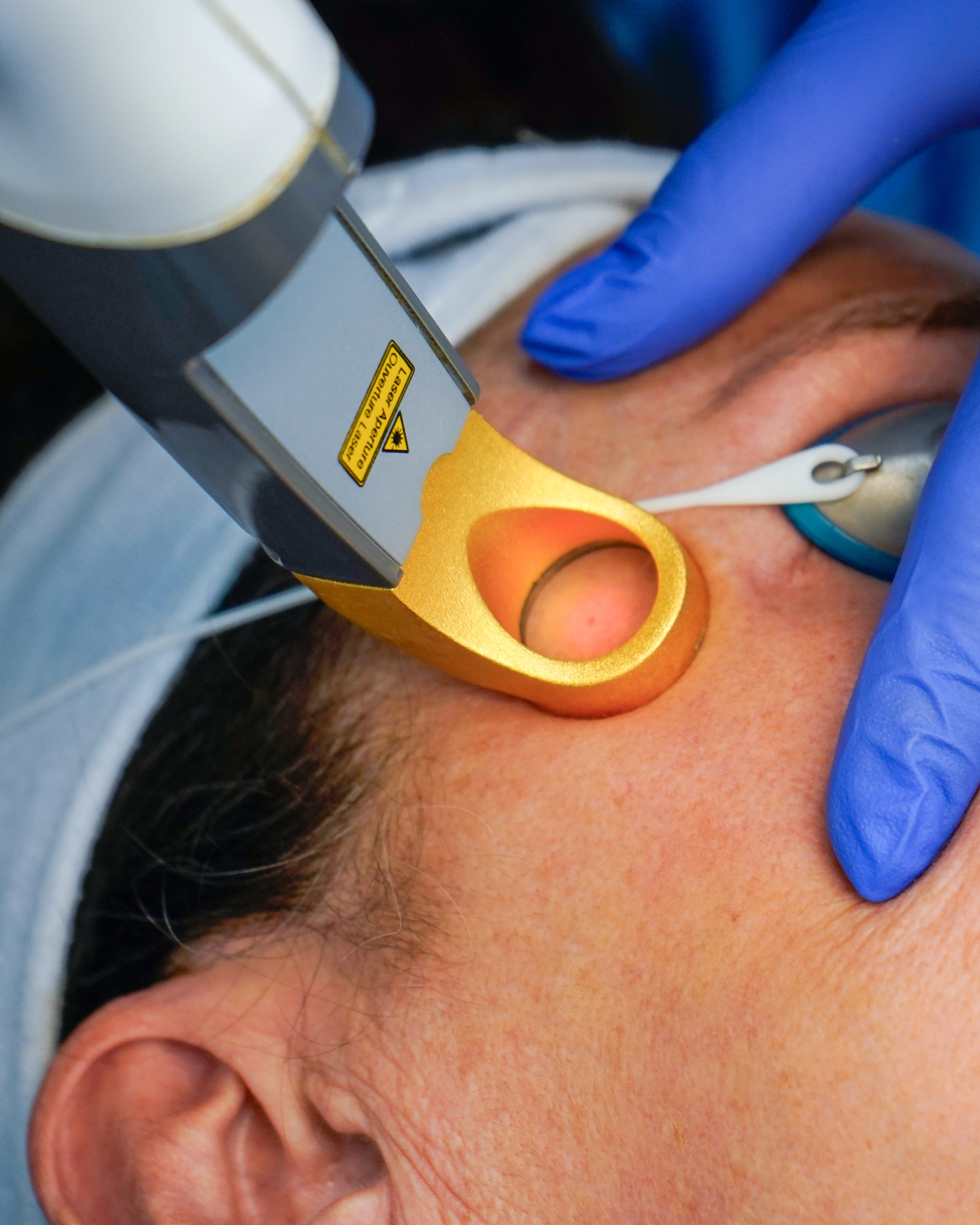
Expert care to treat discolouration, reduce uneven skin tone, and restore your skin’s natural clarity.
Pigmentation concerns occur when melanin—the pigment responsible for skin colour—becomes unevenly distributed, leading to dark patches, spots, or discolouration. These changes can be caused by sun exposure, hormonal fluctuations, inflammation, or genetics. While pigmentation itself is harmless, it can be frustrating and challenging to treat without professional care.
At Southern Dermatology, we specialise in advanced, evidence-based treatments to correct pigmentation, restore skin clarity, and prevent future discolouration. Our tailored approach ensures the safest and most effective treatment for your skin type and concern.
Pigmentation at a glance
✔ Melasma – Patchy, brownish-grey pigmentation, often on the cheeks, forehead, and upper lip, triggered by hormones, pregnancy, or sun exposure.
✔ Post-Inflammatory Hyperpigmentation (PIH) – Darkened spots that appear after acne, burns, rashes, or skin trauma.
✔ Freckles (Ephelides & Lentigines) – Small, brown spots that darken with sun exposure, common in fair-skinned individuals.
✔ Sunspots (Solar Lentigines) – Flat, brown spots caused by UV damage, usually appearing on the face, hands, and décolletage.
✔ Hyperpigmentation from Medications – Some antibiotics, chemotherapy drugs, and hormonal treatments can cause pigmentation changes.
✔ Hypopigmentation – Loss of pigment, resulting in white patches, commonly seen in vitiligo or post-inflammatory conditions.
✔ Sun Exposure (UV Radiation) – The leading cause of pigmentation, as UV light triggers excess melanin production.
✔ Hormonal Changes – Pregnancy, menopause, oral contraceptives, and hormone therapy can cause pigmentation (especially melasma).
✔ Skin Trauma & Inflammation – Acne, burns, rashes, or aggressive treatments can leave long-lasting dark marks (PIH).
✔ Genetics & Ethnicity – Darker skin tones are more prone to hyperpigmentation due to higher melanin levels.
✔ Ageing – Over time, sun damage accumulates, leading to age spots and uneven skin tone.
✔ Medication & Medical Conditions – Certain drugs and autoimmune diseases can cause widespread or localised pigmentation changes.
✔ Medical-Grade Skincare (Tyrosinase Inhibitors) – Prescription creams and serums help regulate melanin production.
✔ Chemical Peels (TCA, Mela Forte, & SkinCeuticals Peels) – Exfoliate pigmented skin layers for a brighter, more even complexion.
✔ Laser Treatments (Enlighten SR & Pico Genesis) – Break down pigment particles and promote natural skin renewal.
✔ Intense Pulsed Light (IPL) Therapy (Limelight IPL) – Targets sunspots and age spots, reducing uneven pigmentation.
✔ Oral & Topical Medications – Includes hydroquinone, tranexamic acid, and retinoids to reduce pigmentation and prevent recurrence.
✔ Sun Protection & Prevention – Daily SPF 50+ sunscreen is critical to preventing further pigmentation.
Treatments We offer for Pigmentation
Frequently Asked Questions
Pigmentation is caused by excess melanin production, triggered by sun exposure, hormones, inflammation, or genetics.
With the right medical treatments, laser therapy, and skincare, most pigmentation can be significantly reduced or eliminated.
The best treatment depends on the type of pigmentation. Laser therapy, chemical peels, and prescription skincare are highly effective.
Laser treatments like Pico Genesis and Enlighten SR break down excess pigment, allowing the skin to clear naturally.
Yes, without proper sun protection and maintenance, pigmentation may reappear. Consistent SPF use is essential.
Results vary, but most patients see improvement within 2–6 weeks, with full results developing over months.
Yes, cumulative sun damage and hormonal changes can make pigmentation more prominent over time.
While some pigmentation can be fully treated, ongoing maintenance and sun protection are required to prevent recurrence.
Yes, at Southern Dermatology, we use lasers specifically suited for darker skin types, ensuring safe and effective treatment.
Some research suggests antioxidant-rich diets may help, but topical and laser treatments remain the most effective solutions.
Yes, hormonal changes during pregnancy can trigger melasma, also known as the "pregnancy mask".
Daily SPF 50+ sunscreen, antioxidants, and avoiding excessive sun exposure can help prevent pigmentation from darkening.
Yes, medical-grade chemical peels are highly effective in reducing pigmentation and improving skin tone.
Yes, treatments like chemical peels, laser therapy, and retinoids can help fade post-acne pigmentation.
Simply fill out our online consultation form, and our dermatologists will assess your skin and create a custom treatment plan.




